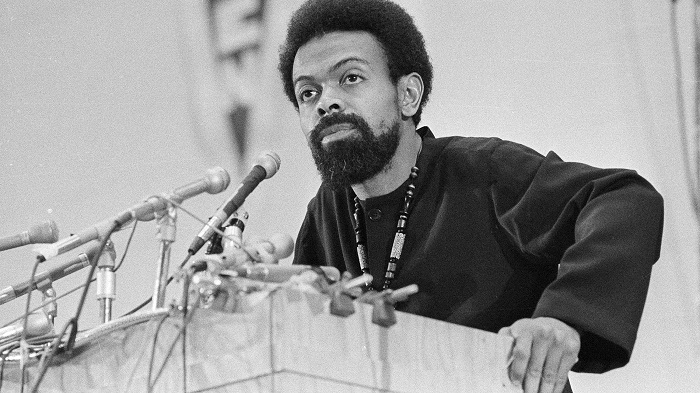Download Amiri Baraka The Dutchman Pdf
Abstract This article explores how the notion of black masculinity embodied by Clay in Amiri Baraka's important play, Dutchman, only surfaces in relation to the complicated picture of femininity Baraka stages in the figure of Lula. Lula's characterization allows her to embody white femininity, and through a form of 'blackface' minstrelsy, to mimic the same black masculinity Baraka was after in Clay's final, angry monologue. By tracing how race and gender categories circulate in Lula's minstrel performance, however, the defining trait of Baraka's new Dutchman of the 1960s emerges--namely, his endless desire for punishment, his unyielding self-'flaying.' By putting pressure on the scope of Lula's complex performance, this article also reveals how Lula's own masochistic white femininity forecloses the same sexual liberty and agency she achieved when she metaphorically 'blacked up.' In this way, Baraka's ironic treatment of Lula and Clay's intricate, interrelated power plays in the end not only illustrates the self-destructive tragedy of black nationalist masculintiy, but also underscores the way white femininity's trafficking in this currency of blackness as a method of empowerment is doomed, like the Dutchman Lula emulates, to suffer endlessly the scene of her own debilitation. • If you would like to authenticate using a different subscribed institution that supports Shibboleth authentication or have your own login and password to Project MUSE, click 'Authenticate'.
• • • You are not currently authenticated. • View freely available titles: OR.

Dutchman Themes. Amiri Baraka. This Study Guide consists of approximately 43 pages of chapter summaries, quotes, character analysis, themes, and more. Sega Ages 2500 Games there. Buy and print the Dutchman Study Guide Print Buy and download the Dutchman Study Guide Word Buy and download the Dutchman Study Guide PDF. Dutchman: Dutchman, one-act drama by Amiri Baraka, produced and published in 1964 under the playwright’s original name LeRoi Jones. Dutchman presents a stylized.
Amiri Baraka, formerly known as LeRoi Jones, became known as one of the most militant, anti-white black nationalists of the 1960s Black Power movement. An advocate of Black Cultural Nationalism, Baraka supported the rejection of all things white and western. He helped found and direct the influential Black Arts movement which sought to move black writers away from western aesthetic sensibilities and toward a more complete embrace of the black world. Except perhaps for James Baldwin, no single figure has had more of an impact on black intellectual and artistic life during the last forty years. In this groundbreaking and comprehensive study, the first to interweave Baraka's art and political activities, Jerry Watts takes us from his early immersion in the New York scene through the most dynamic period in the life and work of this controversial figure. Watts situates Baraka within the various worlds through which he travelled including Beat Bohemia, Marxist-Leninism, and Black Nationalism.
In the process, he convincingly demonstrates how the 25 years between Baraka's emergence in 1960 and his continued influence in the mid-1980s can also be read as a general commentary on the condition of black intellectuals during the same time. Continually using Baraka as the focal point for a broader analysis, Watts illustrates the link between Baraka's life and the lives of other black writers trying to realize their artistic ambitions, and contrasts him with other key political intellectuals of the time. In a chapter sure to prove controversial, Watts links Baraka's famous misogyny to an attempt to bury his own homosexual past. A work of extraordinary breadth, Amira Baraka is a powerful portrait of one man's lifework and the pivotal time it represents in African-American history. Informed by a wealth of original research, it fills a crucial gap in the lively literature on black thought and history and will continue to be a touchstone work for some time to come.